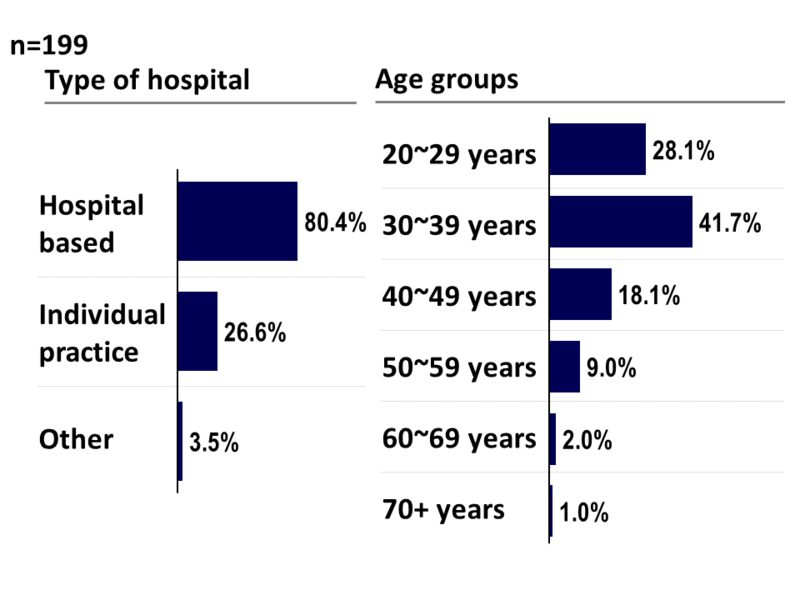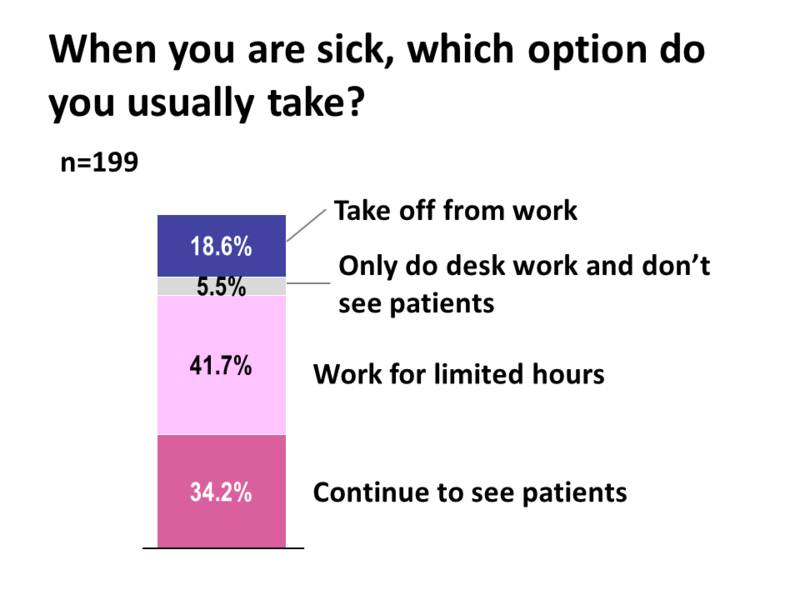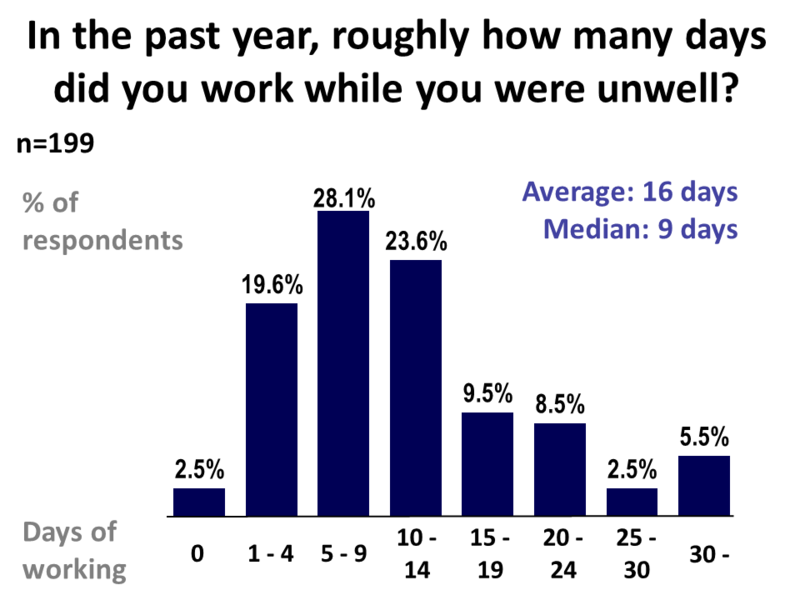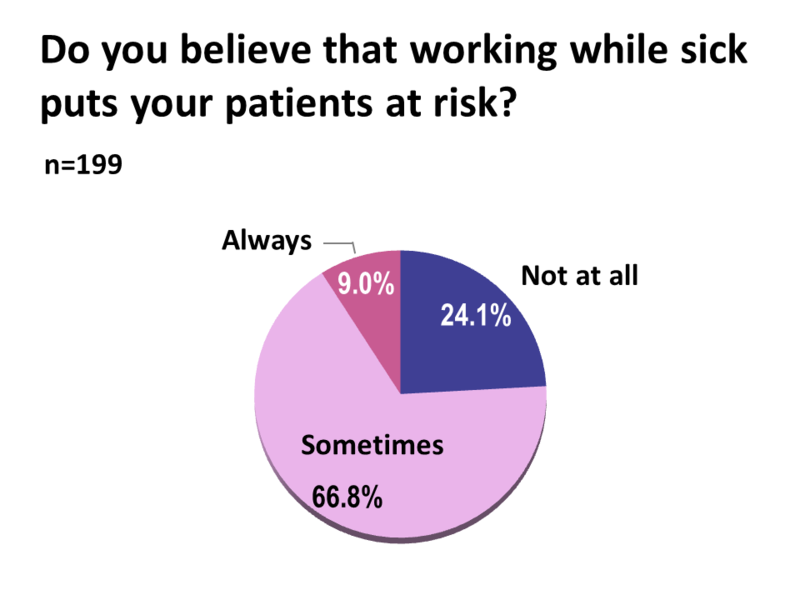M3 India Survey: 75% doctors continue with their duties even when sick
M3 India Newsdesk Jan 18, 2018

Unexpected leaves are not welcome in the workspace and more so if you are a doctor. Doctors are known to work despite illnesses, sometimes jeopardizing their patients’ safety. We conducted a survey of Indian doctors to know how they manage their work when ill and how often they faced situations where they worked despite illness.
Here we present the findings of this online survey.
Methodology
The survey carried a few simple and direct questions for the Indian doctor community. The doctors were requested to respond voluntarily over a period of 2 weeks. A total of 199 doctors responded to the online questionnaire.
Demographics of the respondents:
- Over 41% of respondents were in the age bracket of 30-39 years, while 28% were between the age of 20-29 years
- 80% doctor respondents were hospital employees whereas 27% employees were individual practitioners with private hospitals

Survey Summary
75% doctors continue with their duties even when sick; 34% doctors continue to see patients.
We asked the doctors that if they were sick, which option would they usually choose?
- 42% doctors said they would limit their working hours if they were sick
- 34% doctors said they would continue to see patients even when they were sick
- About 20% doctors said that they take off from work
- 5% doctors said that they continue with duties but refrain from seeing patients if they were sick

The leading reason cited by most responding doctors for choosing to work while sick was, “I had to work as there was no one to cover me” or because “patient load needed to be sorted out”. Respondents also commented on “sick-leave policies”.
On an average, doctors worked 16 days in the past year, even when sick.
We further asked the doctors to share how many days in the past one year they have worked while sick. The gathered response revealed that on an average, doctors worked 16 days even when sick.
A doctor (paediatrician) responded in the write-in response section that it was better to work when sick rather than engaging in “mobile-consultations” with patients.

In the write-in responses the doctors mentioned that they worked in the out- patient department, in night shifts as well as emergency departments during illnesses such as a cough and cold, fever, gastric troubles. A young doctor (gy-ob, 29 y) responded saying he continued with “labor room duties” when he was down with flu. Whereas a senior doctor (onco 50-59 y,) mentioned that he utilises this time for “planning work” and other “duties at desk” but makes sure that he does not see patients when he is sick for the risk of infecting his patients.
Working while sick- Is it acceptable?
We asked the doctors if they believed that working while sick put their patients at risk.
Only 9% doctors believed that they put their patients at risk if they worked while sick. A common response by the doctors was, “can’t concentrate when sick”.

67% doctors responded that they believed that sometimes they put their patients in risk if they worked while sick.
The doctors wrote-in saying that during sickness they could not utilise all their senses optimally, which, according to the respondents, marred their judgement.
24% doctors said that they did not think that their patients were at risk at all if they worked during illness.
Doctors who believed there was no risk involved for the patients if the doctor was sick said so as they believed that their sickness did not affect their clinical judgement or the treatment course for their patients.
Hire Locums
We finally asked the doctors to share any possible ways they could think of to prevent such situations for doctors when sick.
The doctors shared their suggestions and the leading thought was “hiring locums” followed by “group practise” as suggested by few other doctors.
Disclaimer
We have presented the data and facts as they are without generalizing the results as a reflection of the views of entire Indian doctor population. The demographic profile of the survey participants [shown above] may differ from the population of all Indian Doctors. Also, limiting the sample to the Internet channel only may introduce bias in the results. We also urge that the findings should not be interpreted as implying cause and effect.
-
Exclusive Write-ups & Webinars by KOLs
-
Daily Quiz by specialty
-
Paid Market Research Surveys
-
Case discussions, News & Journals' summaries